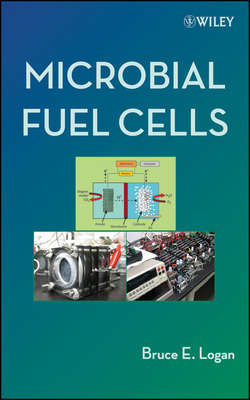Описание книги
The theory, design, construction, and operation of microbial fuel cells Microbial fuel cells (MFCs), devices in which bacteria create electrical power by oxidizing simple compounds such as glucose or complex organic matter in wastewater, represent a new and promising approach for generating power. Not only do MFCs clean wastewater, but they also convert organics in these wastewaters into usable energy. Given the world's limited supply of fossil fuels and fossil fuels' impact on climate change, MFC technology's ability to create renewable, carbon-neutral energy has generated tremendous interest around the world. This timely book is the first dedicated to MFCs. It not only serves as an introduction to the theory underlying the development and functioning of MFCs, it also serves as a manual for ongoing research. In addition, author Bruce Logan, a leading pioneer in MFC research and development, provides practical guidance for the effective design and operation of MFCs based on his own firsthand experience. This reference covers everything you need to fully understand MFCs, including: * Key topics such as voltage and power generation, MFC materials and architecture, mass transfer to bacteria and biofilms, bioreactor design, and fundamentals of electron transfer * Applications across a wide variety of scales, from power generation in the laboratory to approaches for using MFCs for wastewater treatment * The role of MFCs in the climate change debate * Detailed illustrations of bacterial and electrochemical concepts * Charts, graphs, and tables summarizing key design and operation variables * Practice problems and step-by-step examples Microbial Fuel Cells, with its easy-to-follow explanations, is recommended as both a textbook for students and professionals interested in entering the field and as a complete reference for more experienced practitioners.
